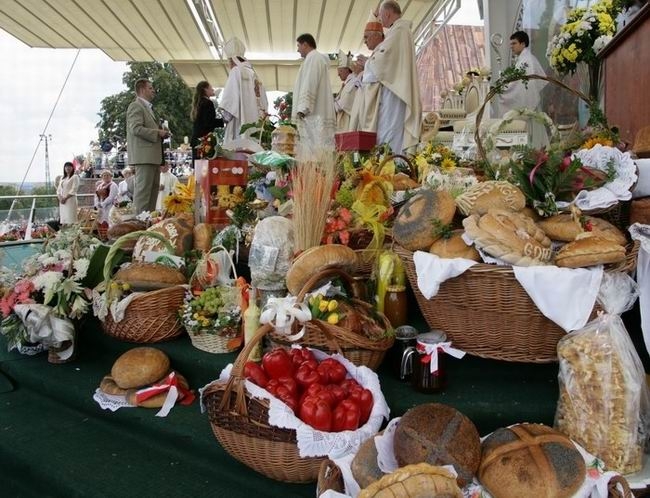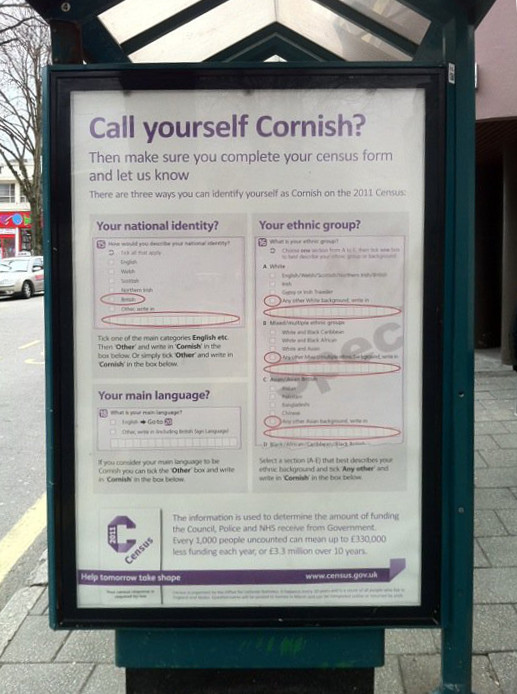|
Guldize
Guldize, Gooldize (sometimes Dicklydize or Nickly Thize) is the harvest festival of the Cornish people. Guldize is an anglicization of Cornish ''Gool dheys'' "the feast of ricks" (i.e., grain stacks). The festival was held at the end of the wheat harvest and took the form of a vast feast usually around the time of the autumnal equinox. The ceremony of Crying The Neck took place before the feast, the neck being formed into a Corn dolly, which presided over the celebrations.AK Hamilton Jenking ''Cornish Homes and Customs'' 1932 Since 2008 a revived Guldize celebration has been held in Penzance and since 2010 in several other locations across Cornwall. Historical description A. K. Hamilton Jenkin wrote in his book ''Cornish Homes and Customs'', The playing of music and communal singing followed sometimes throughout the night. A number of songs in particular have been recorded as being sung on these occasions, including "Green Brooms", "Here's a health to the barley mow", and "Harve ... [...More Info...] [...Related Items...] OR: [Wikipedia] [Google] [Baidu] |
Cornish Festivals
The cultural calendar of Cornwall is punctuated by numerous historic and community festivals and celebrations. In particular there are strong links between parishes and their patronal feast days (which are often days not directly linked to official church patronal celebrations). There is also a tradition of holding celebrations associated with tin mining and fishing. Modern community festivals Since the 1980s there has been a development of community based festivals in Cornwall often named after a famous local resident. These have included William Murdoch, Murdoch day in Redruth, the Daphne du Maurier Festival in Fowey, Richard Trevithick, Trevithick Day in Camborne and the Montol Festival in Penzance. Other modern festivals include, Falmouth, Cornwall, Falmouth oyster festival, Newlyn fish festival, Lowender Peran in Perranporth, Dehwelans Kernow and many more. In Moonta, South Australia, Moonta, South Australia, the Kernewek Lowender (Cornish language, Cornish for "Cornish h ... [...More Info...] [...Related Items...] OR: [Wikipedia] [Google] [Baidu] |
September Observances
September is the ninth month of the year in both the Julian and Gregorian calendars, the third of four months to have a length of 30 days, and the fourth of five months to have a length of fewer than 31 days. September in the Northern Hemisphere and March in the Southern Hemisphere are seasonally equivalent. In the Northern hemisphere, the beginning of the meteorological autumn is on 1 September. In the Southern hemisphere, the beginning of the meteorological spring is on 1 September. September marks the beginning of the ecclesiastical year in the Eastern Orthodox Church. It is the start of the academic year in many countries of the northern hemisphere, in which children go back to school after the summer break, sometimes on the first day of the month. September (from Latin ''septem'', "seven") was originally the seventh of ten months in the oldest known Roman calendar, the calendar of Romulus , with March (Latin '' Martius'') the first month of the year until pe ... [...More Info...] [...Related Items...] OR: [Wikipedia] [Google] [Baidu] |
Harvest Festivals
A harvest festival is an annual celebration that occurs around the time of the main harvest of a given region. Given the differences in climate and crops around the world, harvest festivals can be found at various times at different places. Harvest festivals typically feature feasting, both family and public, with foods that are drawn from crops. In Britain, thanks have been given for successful harvests since pagan times. Harvest festivals are held in September or October depending on local tradition. The modern Harvest Festival celebrations include singing hymns, praying, and decorating churches with baskets of fruit and food in the festival known as Harvest Festival, Harvest Home, Harvest Thanksgiving or Harvest Festival of Thanksgiving. In British and English-Caribbean churches, chapels and schools, and some Canadian churches, people bring in produce from the garden, the allotment or farm. The food is often distributed among the poor and senior citizens of the local c ... [...More Info...] [...Related Items...] OR: [Wikipedia] [Google] [Baidu] |
Festivals In Cornwall
A festival is an event ordinarily celebrated by a community and centering on some characteristic aspect or aspects of that community and its religion or cultures. It is often marked as a local or national holiday, mela, or eid. A festival constitutes typical cases of glocalization, as well as the high culture-low culture interrelationship. Next to religion and folklore, a significant origin is agricultural. Food is such a vital resource that many festivals are associated with harvest time. Religious commemoration and thanksgiving for good harvests are blended in events that take place in autumn, such as Halloween in the northern hemisphere and Easter in the southern. Festivals often serve to fulfill specific communal purposes, especially in regard to commemoration or thanking to the gods, goddesses or saints: they are called patronal festivals. They may also provide entertainment, which was particularly important to local communities before the advent of mass-produced entert ... [...More Info...] [...Related Items...] OR: [Wikipedia] [Google] [Baidu] |
Cornish Culture
The culture of Cornwall ( kw, Gonisogeth Kernow) forms part of the culture of the United Kingdom, but has distinct customs, traditions and peculiarities. Cornwall has many strong local traditions. After many years of decline, Cornish culture has undergone a strong revival, and many groups exist to promote Cornwall's culture and language today. Language The Cornish language is a Celtic language closely related to Breton and slightly less so to Welsh and Cumbric. All of these are directly descended from the British language formerly spoken throughout most of Britain. The language went into decline following the introduction of the English ''Book of Common Prayer'' (in 1549) and by the turn of the 19th century had ceased to be used as a community language (see main article for further discussion). During the 19th century researchers began to study the language from any remaining isolated speakers and in 1904 Henry Jenner published ''A Handbook in the Cornish Language'' which st ... [...More Info...] [...Related Items...] OR: [Wikipedia] [Google] [Baidu] |
Harvest Festival
A harvest festival is an annual celebration that occurs around the time of the main harvest of a given region. Given the differences in climate and crops around the world, harvest festivals can be found at various times at different places. Harvest festivals typically feature feasting, both family and public, with foods that are drawn from crops. In Britain, thanks have been given for successful harvests since pagan times. Harvest festivals are held in September or October depending on local tradition. The modern Harvest Festival celebrations include singing hymns, praying, and decorating churches with baskets of fruit and food in the festival known as Harvest Festival, Harvest Home, Harvest Thanksgiving or Harvest Festival of Thanksgiving. In British and English-Caribbean churches, chapels and schools, and some Canadian churches, people bring in produce from the garden, the allotment or farm. The food is often distributed among the poor and senior citizens of the loca ... [...More Info...] [...Related Items...] OR: [Wikipedia] [Google] [Baidu] |
Allantide
Allantide ( kw, italic=yes, Kalan Gwav, meaning ''first day of winter'', or ''Nos Kalan Gwav'', meaning ''eve of the first day of winter'' and ''Dy' Halan Gwav'', meaning ''day of the first day of winter''), also known as Saint Allan's Day or the Feast of Saint Allan, is a Cornish festival that was traditionally celebrated on the night of 31 October, as well as the following day time, and known elsewhere as Allhallowtide. The festival in Cornwall is the liturgical feast day of St Allan (also spelled St Allen or St Arlan), who was the bishop of Quimper in the sixth century. As such, Allantide is also known as Allan Night and Allan Day. The origins of the name Allantide also probably stem from the same sources as Hollantide (Wales and the Isle of Man) and Hallowe'en itself. As with the start of the celebration of Allhallowtide in the rest of Christendom, church bells were rung in order to comfort Christian souls in the intermediate state. Another important part of this festiv ... [...More Info...] [...Related Items...] OR: [Wikipedia] [Google] [Baidu] |
Cornish People
The Cornish people or Cornish ( kw, Kernowyon, ang, Cornƿīelisċ) are an ethnic group native to, or associated with Cornwall: and a recognised national minority in the United Kingdom, which can trace its roots to the ancient Britons who inhabited southern and central Great Britain before the Roman conquest. Many in Cornwall today continue to assert a distinct identity separate from or in addition to English or British identities. Cornish identity has been adopted by migrants into Cornwall, as well as by emigrant and descendant communities from Cornwall, the latter sometimes referred to as the Cornish diaspora. Although not included as an tick-box option in the UK census, the numbers of those writing in a Cornish ethnic and national identity are officially recognised and recorded. Throughout classical antiquity, the ancient Britons formed a series of tribes, cultures and identities in Great Britain; the Dumnonii and Cornovii were the Celtic tribes who inhabited what w ... [...More Info...] [...Related Items...] OR: [Wikipedia] [Google] [Baidu] |
Richard Carew (antiquary)
Richard Carew (17 July 1555 – 6 November 1620) was a British translator and antiquary. He is best known for his county history, ''Survey of Cornwall'' (1602). Life Carew belonged to a prominent gentry family, and was the eldest son of Thomas Carew: he was born on 17 July 1555 at East Antony, Cornwall. He was educated at Christ Church, Oxford, where he was a contemporary of Sir Philip Sidney and William Camden, and then at the Middle Temple. He made a translation of the first five cantos of Tasso's ''Jerusalem Delivered'' (1594), which was more correct than that of Edward Fairfax. He also translated Juan de la Huarte's ''Examen de Ingenios'', basing his translation on Camillo Camilli's Italian version. (This book is the first systematic attempt to relate physiology with psychology, though based on the medicine of Galen. ) Carew was a member of the Elizabethan Society of Antiquaries, and is particularly known for his ''Survey of Cornwall'' (1602), the second English count ... [...More Info...] [...Related Items...] OR: [Wikipedia] [Google] [Baidu] |






